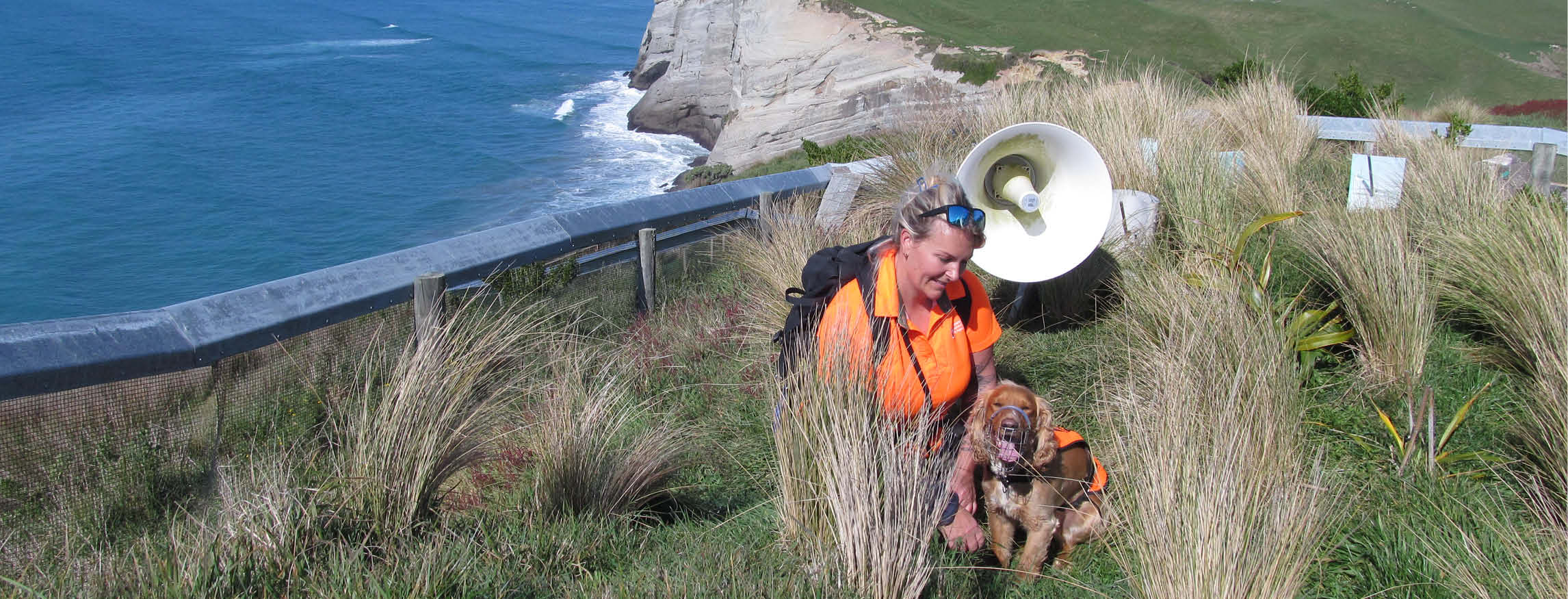
It’s been an exciting Spring at the Wharariki Ecosanctuary. The Ecosanctuary was created by the HealthPost Nature Trust and partners, including Manawhenua ki Mohua and the Department of Conservation, to regenerate biodiversity here in Mohua Golden Bay, and it’s having some wins!
After years of work, including more than 9000 hours by dedicated community volunteers – planting trees, trapping pests, building fences, installing nest boxes and nurturing translocated chicks – the first seabirds are nesting safely at the Ecosanctuary this season. There are currently 4 pakahā fluttering shearwater and 2 kuaka diving petrel sitting on eggs in the inner sanctuary. These birds were called in by acoustic attraction (speakers playing bird call) while they were prospecting for burrows, and they’ve decided to settle in.
After the successful translocation of almost 200 pakahā fluttering shearwater chicks to the Wharariki Ecosanctuary over the past three years, we expect to see the first of these birds returning to nest there later in the season, and those birds already nesting will be helping it to smell like home!
Importantly, the inner area of the Wharariki Ecosanctuary has just been confirmed free of mice, with the help of a clever cocker spaniel named Tahi, a Department of Conservation sniffer dog, and his handler Julie Hill. (Other mammals have already been excluded from entire Ecosanctuary.) The HealthPost Nature Trust is pleased to have achieved this through a solid toxin-free trapping effort over the winter. Mice pose a threat to lizards and invertebrates, including the threatened Nelson Green Gecko which naturally resides there.
The new mouse-free status paves the way for reintroducing other lizards and threatened inveterbrates like the Cook Strait Weta, building on the shared vision of regenerating a thriving, biodiverse ecosystem here at the tip of Te Wai Pounamu the South Island.
As well as being taonga species in their own right, bringing seabird gauno (bird poo) back to the mainland boosts fertility and is a key aspect of this ecosystem regeneration. We’ll keep you posted as the bird breeding season progresses!
|

